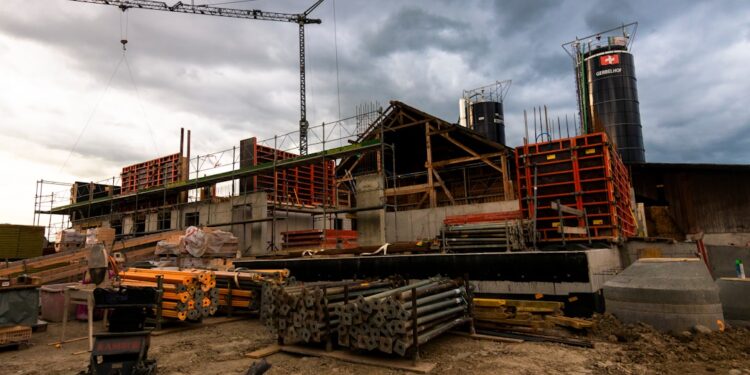Industrial engineering is a field that focuses on optimizing complex processes, systems, and organizations to improve efficiency, productivity, and profitability. As technology continues to advance at a rapid pace, industrial engineering trends are constantly evolving to keep up with these changes. In this blog post, we will discuss some of the latest trends in industrial engineering that are shaping the future of the industry.
1. Internet of Things (IoT) Integration
The Internet of Things (IoT) is revolutionizing the way industrial engineering processes are managed. By integrating IoT devices into manufacturing equipment, industrial engineers can collect valuable data in real-time to monitor and optimize performance. For example, sensors placed on machinery can track performance metrics such as temperature, pressure, and vibration, allowing engineers to detect potential issues before they escalate. This proactive approach to maintenance can help companies minimize downtime and reduce costly repairs.
2. Artificial Intelligence (AI) and Machine Learning
Artificial intelligence and machine learning algorithms are playing an increasingly important role in industrial engineering. These technologies are able to analyze vast amounts of data to identify patterns and trends that can be used to improve processes and make more informed decisions. By leveraging AI and machine learning, industrial engineers can optimize production schedules, predict equipment failures, and streamline supply chain operations. This can result in significant cost savings and increased productivity for manufacturing companies.
3. Robotics and Automation
Robotics and automation have been a staple in industrial engineering for many years, but recent advancements in technology have made these tools more versatile and efficient than ever before. Industrial robots are now able to perform a wider range of tasks with greater precision, allowing manufacturers to automate complex processes that were previously done manually. This not only increases efficiency and productivity but also improves worker safety by minimizing exposure to dangerous tasks.
4. Additive Manufacturing
Additive manufacturing, also known as 3D printing, is revolutionizing the way products are designed and manufactured. This technology allows engineers to create complex parts and components using a layer-by-layer approach, which can significantly reduce production time and costs. Additive manufacturing also enables companies to produce customized products on-demand, without the need for expensive tooling or molds. This flexibility is ideal for industries such as aerospace, medical devices, and automotive where customization is key.
5. Sustainability and Green Manufacturing
In today’s environmentally conscious world, sustainability and green manufacturing practices are becoming increasingly important in industrial engineering. Companies are looking for ways to reduce their carbon footprint and minimize waste throughout the production process. Industrial engineers are implementing strategies such as energy-efficient manufacturing processes, recycling initiatives, and the use of sustainable materials to help companies achieve their sustainability goals. These practices not only benefit the environment but also improve public perception and attract eco-conscious consumers.
6. Augmented Reality (AR) and Virtual Reality (VR)
Augmented reality and virtual reality technologies are transforming the way industrial engineers design, prototype, and test products. By using AR and VR tools, engineers can visualize and interact with 3D models in a virtual environment, allowing them to identify design flaws, simulate production processes, and train employees more effectively. These immersive technologies can also be used for remote troubleshooting and maintenance tasks, reducing the need for on-site visits and minimizing downtime.
7. Lean Manufacturing and Six Sigma
Lean manufacturing and Six Sigma methodologies continue to be key trends in industrial engineering, as companies strive to eliminate waste and improve process efficiency. By implementing lean principles such as just-in-time inventory management and value stream mapping, companies can streamline production processes and reduce costs. Six Sigma techniques, on the other hand, focus on minimizing variation and defects in manufacturing processes to ensure consistent quality and customer satisfaction. Industrial engineers play a crucial role in leading these continuous improvement initiatives and driving operational excellence within their organizations.
8. Supply Chain Optimization
Supply chain optimization is another important trend in industrial engineering, as companies seek to improve the efficiency and resilience of their global supply chains. Industrial engineers are using advanced analytics and modeling tools to optimize inventory levels, transportation routes, and production schedules to meet customer demand while minimizing costs. By leveraging predictive analytics and simulation modeling, companies can better anticipate supply chain disruptions and proactively address potential risks before they impact operations.
In conclusion, the field of industrial engineering is constantly evolving to meet the demands of today’s rapidly changing business environment. By embracing the latest trends and technologies such as IoT integration, AI and machine learning, robotics and automation, additive manufacturing, sustainability practices, AR and VR, lean manufacturing, Six Sigma, and supply chain optimization, industrial engineers can help companies stay competitive and drive innovation in the industry. As technology continues to advance, industrial engineering will play a crucial role in shaping the future of manufacturing and driving success for companies around the world.















